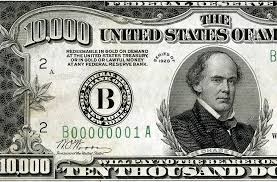
All You Need To Know About Dollar-Denominated Cryptocurrencies
A well-known obstacle to the greater popularity of Bitcoin as a medium of payment is the high volatility of its exchange value. This volatility results from its built-in quantity commitment: because the number of Bitcoins in existence stays on a programmed path, variations in the real demand to hold Bitcoin must be accommodated entirely by variations in its unit value. When demand goes up, there is no quantity increase to dampen the rise in price; and vice-versa for a fall in demand.
Not surprisingly, several cryptocurrency developers have thought of creating a cryptocurrency with a price commitment–namely a pegged exchange rate with the US dollar–rather than a quantity commitment, in hopes of greater popularity. The aim is to create a system in which dollar-denominated payments can be made with the ease, security, and low cost of Bitcoin payments, but without the exchange-rate risk.
New Digital Assets
The development of “Blockchain 2.0” platforms has enabled the launching of a variety of new digital assets, including such dollar-pegged (and euro-pegged and gold-pegged) currencies. As we will see, the histories of early (2014-2016) dollar-pegged cryptocurrencies show a series of flops. But one project, Tether, has become a late-blooming success.
Tether had $55 million in circulation as of March 29, 2017, making it the #13 largest cryptocurrency. To keep this size in perspective, a brick-and-mortar US institution with $55 million in deposits is a tiny bank or a mid-size credit union, and Tether is currently only 1/300th the size of Bitcoin.
The Tether white paper explains in more detail the motivation for developing a dollar-pegged cryptocurrency by listing advantages to individuals using it for dollar-denominated transactions rather than using dollars held in “legacy bank” accounts:
Transact in USD/fiat value, pseudonymously, without any middlemen/intermediaries
Cold store USD/fiat value by securing one’s own private keys
Avoid the risk of storing fiat on [cryptocurrency] exchanges–move cryptofiat in and out of exchanges easily
Avoid having to open a fiat bank account to store fiat value
In sum, “Anything one can do with Bitcoin as an individual one can also do with” a dollar-pegged cryptocurrency, namely, “avoid credit card [or debit card] fees,” maintain greater privacy, “remit payments globally” more cheaply, and access blockchain financial services.
But what is the claimed advantage over using Bitcoin? It is the expectation of wider acceptance in payments, because of the advantages to merchants of accepting a dollar-pegged cryptocurrency over accepting Bitcoin in a US-dollar-dominated economy:
Price goods in USD/fiat value rather than Bitcoin (no moving conversion rates/purchase windows)
Avoid conversion from Bitcoin to USD/fiat and associated fees and processes
The Flops
First we consider the projects that have flopped. Three projects were launched in September 2014: CoinoUSD, NuBits, and BitUSD. Their pegging mechanisms were different, and are difficult to describe briefly (partly because they were not all entirely transparent), but two common features are important to note.
The rate-pegging mechanisms were not programmed into a source code, like Bitcoin’s quantity commitment, but relied on non-programmed policy actions by a trusted central authority.
None used the traditional currency pegging method of having the issuer hold reserves in physical dollars or dollar-denominated debt securities. (On the NuBits mechanism see this critique by a BitUSD promoter. On the BitUSD mechanism see this critique by the CoinoUSD developer.)
We can examine the fortunes of each project by looking at its price and “market capitalization” (value-in-circulation) history on the cryptocurrency tracking site CoinMarketCap.com.
CoinoUSD
CoinoUSD, which began trading in December 2014, was developed by a for-profit payments firm called Coinomat and built on the blockchain of the NXT cryptocurrency. (In November 2014 NXT was the #6 cryptocurrency with a market cap of $19 million; currently it ranks #38 with a market cap around $13 million.)
CoinoUSD reached a market cap plateau of $2.7 million in early 2016, but shut down in early 2016, due to a “payout glitch” that flooded customers with free CoinoUSD units, making it impossible to maintain the exchange value at $1. Coinomat announced a reboot in which the erroneous payout would be reversed and said, “NXTUSD will replace CoinoUSD completely, and enhance it,” but this appears not to have happened. Since then it has had a market cap of zero, and its webpage at the Coinomat site declares it “disabled until further notice.”
NuBits
The history of NuBits, also a for-profit enterprise, shows that it gained only a similarly small market foothold. Its market cap plateaued early on below $2.5 million, and since April 2015 has remained below $1 million. In June 2016 NuBits had a devaluation crisis, with the price falling to 20 cents. Its rate-pegging intervention mechanism, despite claiming many layers of reinforcement, was not robust and failed.
Although the price later returned to par, today NuBits shows very little market activity. Since January 2017 the market cap has hovered around only $135,000, with daily trading volume in the neighborhood of $2000.
BitUSD
BitUSD is built on the blockchain platform of the cryptocurrency BitSharesX. Its highest market cap plateau was around $1 million soon after introduction, but it fell to below $200,000 in April 2015 and is currently less than $110,000.
BitUSD uses a novel pegging system that so far has proven robust. A piece promoting BitUSD emphasizes that “the bitUSD is an asset that is not backed by real dollar in someone’s bank account.” (It claims this a virtue: “We cannot trust anyone to hold and secure a physical asset so that people can redeem it eventually. History has repeatedly shown: It doesn’t work!” In fact, history shows the major banks in unhampered banking systems routinely justifying the public’s trust by redeeming their liabilities on demand for decades. Paypal works on the same supposedly non-working model, backed by Paypal’s dollar deposits at Wells Fargo Bank.)
By contrast, BitUSD are created through collateralized forward currency contracts. The network provides an escrow service that credibly ensures repurchase (or “redemption”) of the BitUSD at or near par. Someone who wants to acquire BitUSD, say in order to buy from a seller who prefers a dollar-denominated medium of exchange, offers a contract: so many BitShares (hereafter BTS) for a certain amount of new BitUSD.
Under the BitShare network rules, the acquirer must not only pay at the outset in BTS but also agree to post collateral in BTS equal to the value of the bid. If the bid is accepted by another network participant, explains the BitUSD white paper, “the collateral and purchase price are held by the network until the BitUSD is redeemed” by some third party repurchasing it. The acquirer of BitUSD thus puts 200% collateral into a contract “that only allows access to these BTS when the BitUSD are paid back.” In effect the acquirer is shorting the dollar price of BTS.
“BitUSD is an asset used to hedge a position in BitShares against changes in the price of USD and is not supposed to have an exact 1:1 exchange rate with USD.”
Note that the new BitUSD units are initially 200% collateralized not in dollar-denominated assets, but in BTS. If BTS fall 25% or more against
David Ogden
Entrepreneur
David https://markethive.com/david-ogden






